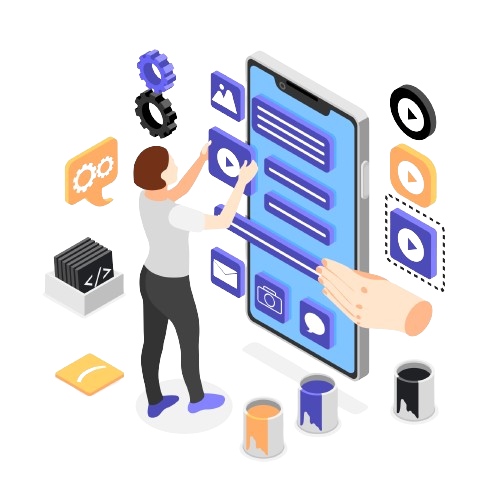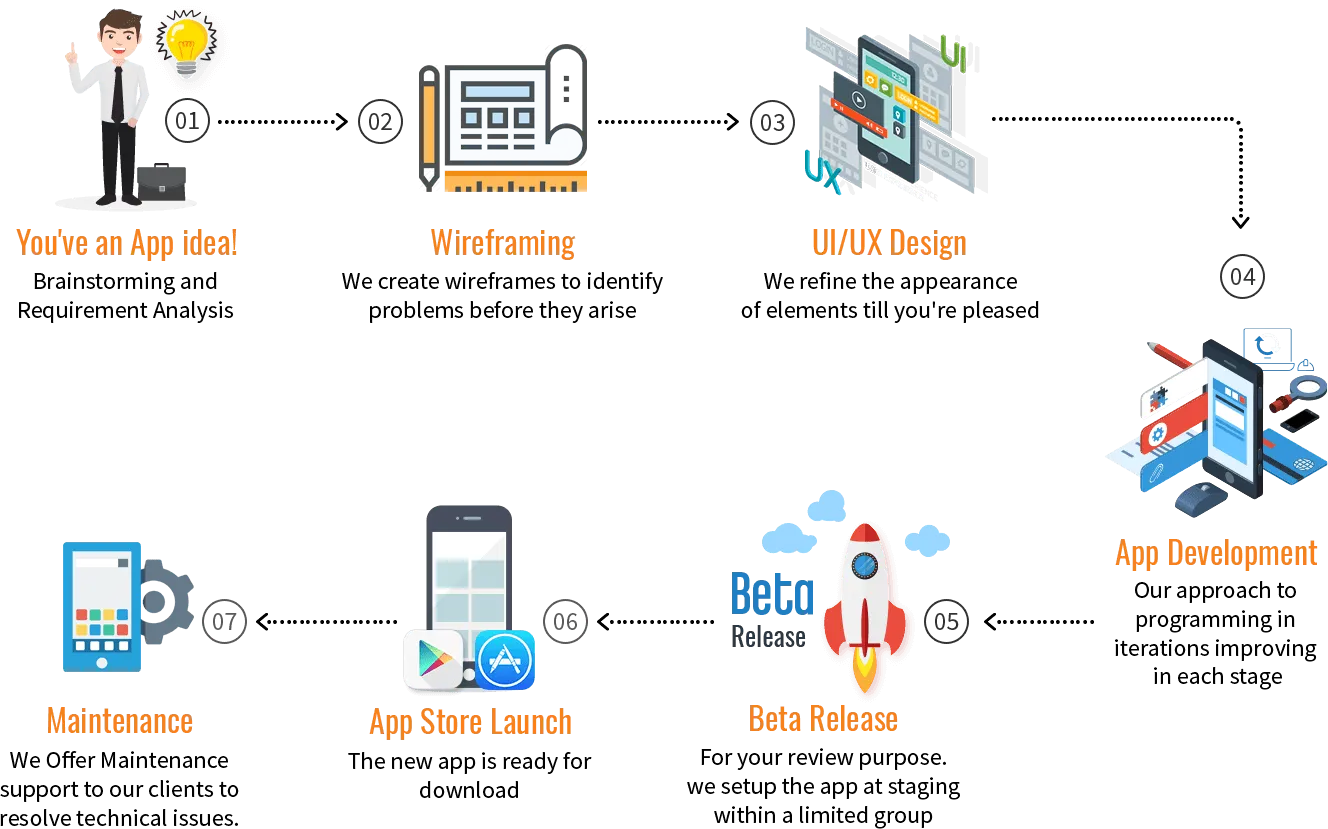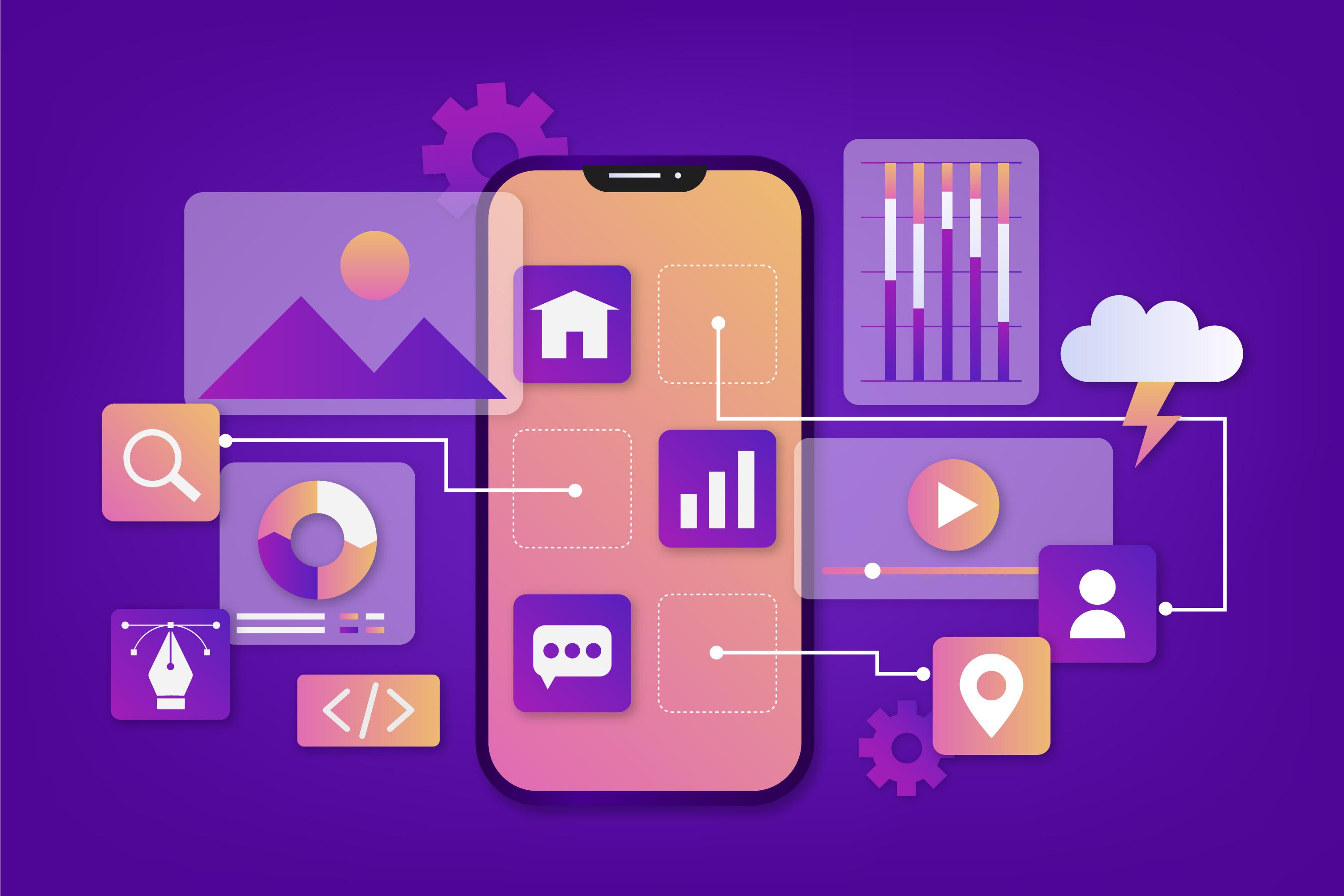
Introduction to App Development
App development involves creating software applications for mobile devices, such as smartphones and tablets. It encompasses various stages, from conceptualization and design to development, testing, and deployment.
Importance:
- Market Demand: With the increasing use of smartphones, apps have become an integral part of daily life.
- Business Growth: Apps offer businesses an opportunity to expand their reach, engage users, and enhance customer experience.
- Innovation: App development drives technological innovation and creativity.
From premium websites to mobile apps, we can help companies large and small get your message across and seen by your customers, whether you're selling products, services or promoting content. We create great digital products that help our customers stay ahead of the competition.
Phase
Phases of App Development
Planning and Research
- Idea Generation: Brainstorming and refining the app idea.
- Market Analysis: Researching competitors, target audience, and market trends.
- Defining Goals: Setting clear objectives and functionalities of the app.
Design
- UI/UX Design: Creating an intuitive and visually appealing user interface.
- Wireframing and Prototyping: Developing initial mockups and prototypes for testing user interaction.
Development
- Frontend Development: Writing code for the user-facing part of the app.
- Backend Development: Building server-side logic, databases, and APIs.
- Testing: Conducting rigorous testing to identify and fix bugs and issues.
Deployment and Maintenance
- Launch: Publishing the app on app stores (e.g., Apple App Store, Google Play Store).
- Updates and Maintenance: Regularly updating the app to improve performance, fix bugs, and introduce new features based on user feedback.

Technology
Technologies and Tools
Programming Languages:
- iOS: Swift, Objective-C
- Android: Java, Kotlin
- Cross-platform: React Native, Flutter
Development Tools and Frameworks:
- IDEs: Xcode (iOS), Android Studio (Android), Visual Studio Code
- Frameworks: React Native, Flutter, Xamarin
Backend Technologies:
- Databases: MySQL, MongoDB, Firebase
- Server-side Development: Node.js, Django, Flask
Challenges
Challenges in App Development

- Compatibility: Ensuring the app works seamlessly across different devices, screen sizes, and operating system versions.
- Security: Implementing robust security measures to protect user data and prevent vulnerabilities.
- Performance Optimization: Optimizing app performance for speed, responsiveness, and resource usage.
- User Feedback and Updates: Effectively collecting user feedback and integrating necessary updates for better user experience.
Best Practices
Best Practices in App Development

- User-Centric Approach: Prioritize user experience and usability during design and development.
- Agile Methodology: Adopting an iterative approach for faster development, flexibility, and continuous improvement.
- Regular Testing: Conducting thorough testing at each development stage to identify and fix issues early.
- Analytics and Feedback: Utilizing analytics tools to gather user data and feedback for informed decision-making.
